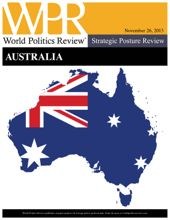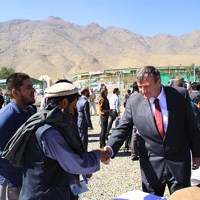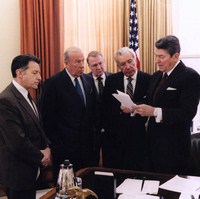
After winning the October 2013 elections, the new Coalition government of Prime Minister Tony Abbott inherited the difficult task of readjusting Australia’s strategic and defense policy. Power shifts in Asia have already begun to challenge fundamental aspects of Australia’s strategic posture. The rise of China and the relative decline of the U.S. position in the Asia-Pacific region potentially put Australia in a difficult position: that of maintaining close relations with both its major ally, the United States, and its most important trading partner, China. If Sino-U.S. relations become even more competitive, Canberra could find itself between a rock and a […]




